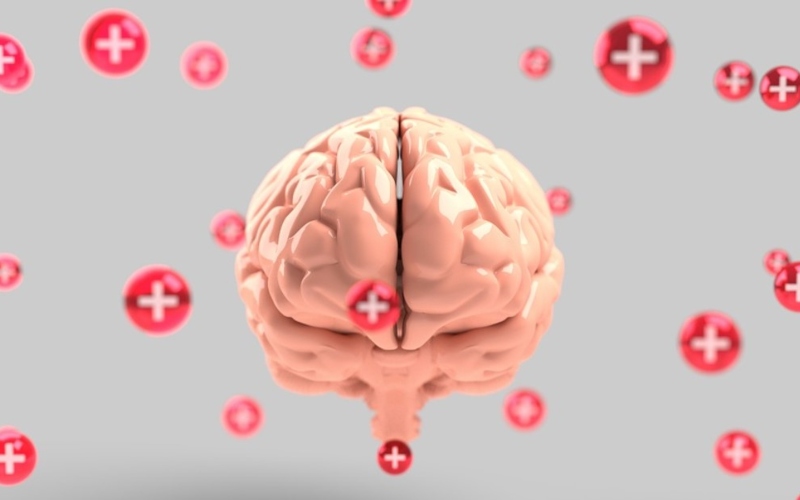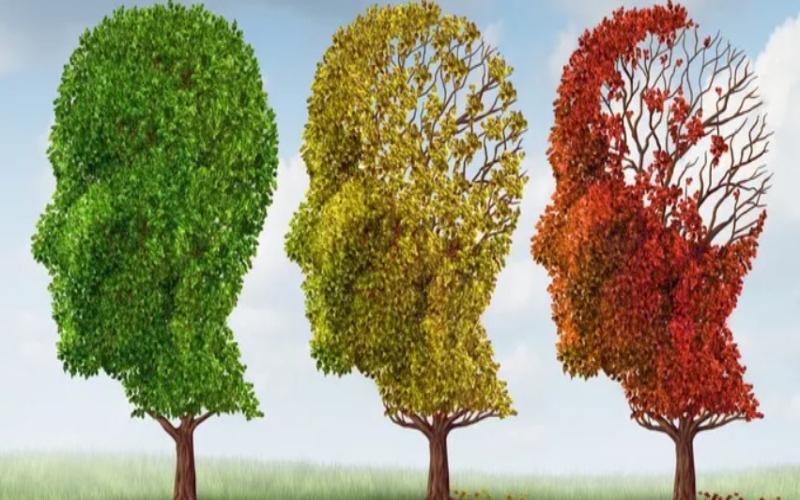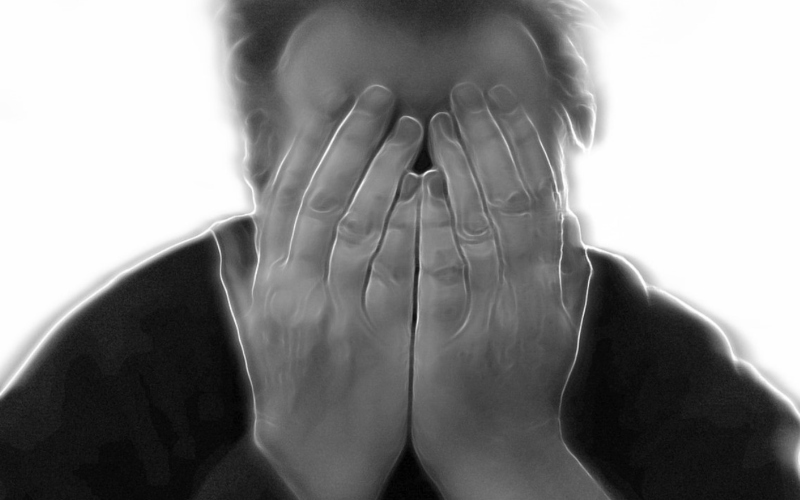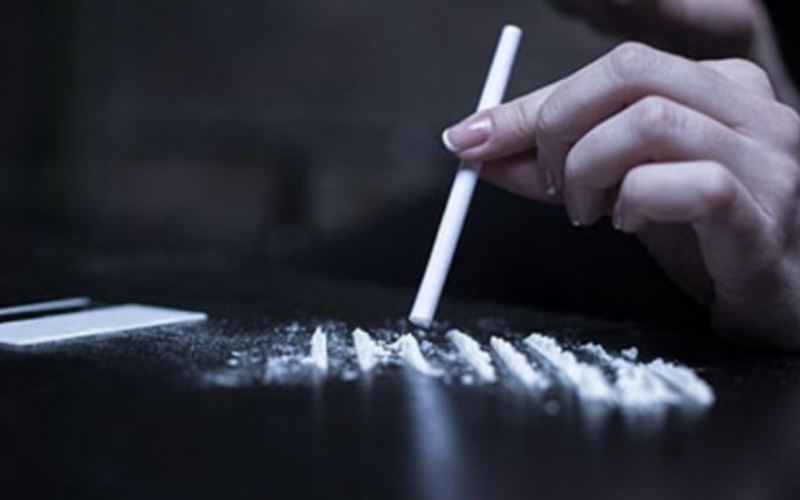
Created by - Mano Shakti
What is Alcohol Abuse?You’ve probably heard of “alcohol abuse,” "alcohol dependence,” or “alcoholism.” Maybe you know the new term doctors use, “alcohol use disorder.”Warning SignsYou may have an alcohol use disorder if you:Drink more, or longer, than you plan toHave tried to cut back or stop more than once and couldn’tSpend a lot of time drinking, being sick, or hungoverHave problems with work, school, or family because of your habit (or because you're sick after having alcohol)Keep drinking even though it has caused problems for you or your relationships
More detailsPublished - Tue, 11 Apr 2023

Created by - Mano Shakti
What is Anxiety?Ever wondered why you were trembling before your exam, or why your palms got sweaty before that job interview? These anxious feelings are a natural way for the body to prepare itself for an important event. You would have also noticed how you started to calm down once the event was under way; you started to breathe easier and your heart stopped thumping. Such an anxiety actually helps us perform better as it makes us more alert.However, some people experience anxiety or anxiety attacks for no apparent reason. If you find it hard to control your worries and if these constant feelings of anxiety affect your ability to go about your daily activities, then it might be a case of an anxiety disorder.Key Symptoms of Anxiety are: -Worrying about bills, job interviews, tests or other important events. The feeling of 'butterflies in your stomach' before a public performance or a big meeting.Fear of a dangerous object, place or situation, for instance, a stray dog barking at you on the street.Sadness or worry immediately after a traumatic event such as the loss of a loved one.Maintaining hygiene personally and in your surroundings.Worrying constantly and excessively for no apparent reason, making it difficult for you to perform day-to-day activities.
More detailsPublished - Tue, 11 Apr 2023

Created by - Mano Shakti
What is Attention Disorders?Could someone you know have ADHD? Maybe they're inattentive. Or they might be hyperactive and impulsive. They might have all those traits.Symptoms of ADHD usually show up when kids are young: around age 12 on average. But they can show up much earlier. Some kids have been diagnosed by age 3.There are three groups of symptoms:Inattention: Have a hard time getting along with others because they can’t read people’s feelings and moodsInattention: Daydream a lotInattention: Be too wrapped up in their own thoughts to hear youHyperactivityImpulsivity
More detailsPublished - Tue, 11 Apr 2023

Created by - Mano Shakti
What is Bipolar?Bipolar disorder, also known as manic depression, is a mental illness that brings severe high and low moods and changes in sleep, energy, thinking, and behavior. People who have bipolar disorder can have periods in which they feel overly happy and energized and other periods of feeling very sad, hopeless, and sluggish. In between those periods, they usually feel normal. You can think of the highs and the lows as two "poles" of mood, which is why it's called "bipolar" disorder.The word "manic" describes the times when someone with bipolar disorder feels overly excited and confident. These feelings can also involve irritability and impulsive or reckless decision-making. About half of people during mania can also have delusions (believing things that aren't true and that they can't be talked out of) or hallucinations (seeing or hearing things that aren't there).What Are the Symptoms of Bipolar Disorder?Excessive happiness, hopefulness, and excitementSudden changes from being joyful to being irritable, angry, and hostileRestlessnessRapid speech and poor concentrationIncreased energy and less need for sleep
More detailsPublished - Tue, 11 Apr 2023

Created by - Mano Shakti
What is Dementia?Dementia is a broad term that describes a loss of thinking ability, memory, attention, logical reasoning, and other mental abilities. These changes are severe enough to interfere with social or occupational functioning.Many things can cause dementia. It happens when the parts of your brain used for learning, memory, decision making, and language are damaged or diseased.These forms of dementia are partially manageable, but they aren't reversible:Alzheimer's diseaseVascular dementiaDementia from Parkinson's disease and similar disordersDementia with Lewy bodiesFrontotemporal dementia (Pick's disease)
More detailsPublished - Tue, 11 Apr 2023

Created by - Mano Shakti
What is Depression?A constant sense of hopelessness and despair is a sign you may have major depression, also known as clinical depression. With major depression, it may be difficult to work, study, sleep, eat, and enjoy friends and activities. Some people have clinical depression only once in their life, while others have it several times in a lifetime.Major depression can sometimes occur from one generation to the next in families, but often it may affect people with no family history of the illness.Key Symptoms of Depression are:-Fatigue or loss of energy almost every dayFeelings of worthlessness or guilt almost every dayImpaired concentration, indecisivenessInsomnia or hypersomnia (excessive sleeping) almost every dayMarkedly diminished interest or pleasure in almost all activities nearly every day (called anhedonia, this symptom can be indicated by reports from significant others)
More detailsPublished - Tue, 11 Apr 2023

Created by - Mano Shakti
What is Drug Addiction?Addiction—to prescription and street drugs and alcohol —is a serious problem. If you’re worried that you or a loved one may have an addiction,There are signs to help you know.Signs you may have a drug problem:You keep taking a drug after it's no longer needed for a health problem.You need more and more of a substance to get the same effects (called "tolerance"), and you can take more before you feel an effect.You feel strange when the drug wears off. You may be shaky, depressed, sick to your stomach, sweat, or have headaches. You may also be tired or not hungry. In severe cases, you could even be confused, have seizures, or run a fever.You can't stop yourself from using the drug, even if you want to. You are still using it even though it's making bad things happen in your life, like trouble with friends, family, work, or the law.You spend a lot of your time thinking about the drug: how to get more, when you'll take it, how good you feel, or how bad you feel afterward.
More detailsPublished - Tue, 11 Apr 2023

Created by - Mano Shakti
What is Hyperactivity?It may vary with age. You might be able to notice it in preschoolers. ADHD symptoms nearly always show up before middle school.Toddlers and preschoolers with ADHD tend to be constantly in motion, jumping on furniture and having trouble participating in group activities that call for them to sit still. For instance, they may have a hard time listening to a story. School-age children have similar habits, but you may notice those less often. They are unable to stay seated, squirm a lot, fidget, or talk a lot.Kids with hyperactivity may:Fidget and squirm when seatedGet up frequently to walk or run aroundRun or climb a lot when it's not appropriate. (In teens, this may seem like restlessness.)Have trouble playing quietly or doing quiet hobbiesAlways be "on the go"
More detailsPublished - Tue, 11 Apr 2023

Created by - Mano Shakti
What is Impulsivity?Impulsivity can lead to accidents, like knocking over objects or banging into people. Children with ADHD may also do risky things without stopping to think about the consequences. For instance, they may climb and put themselves in danger.Many of these symptoms happen from time to time in all youngsters. But in children with the disorder they happen a lot -- at home and school, or when visiting with friends. They also mess with the child's ability to function like other children who are the same age or developmental level.Symptoms of this include and The person might:ImpatienceHaving a hard time waiting to talk or reactHave a hard time waiting for their turn.Blurt out answers before someone finishes asking them a question.Frequently interrupt or intrude on others. This often happens so much that it causes problems in social or work settings. Friends might get mad at them or get their feelings hurt because they may act without thinking.
More detailsPublished - Tue, 11 Apr 2023

Tue, 11 Apr 2023

Tue, 11 Apr 2023

Tue, 11 Apr 2023
Write a public review